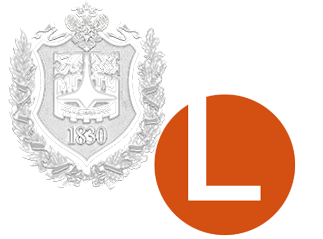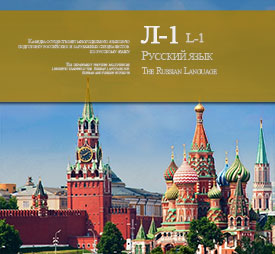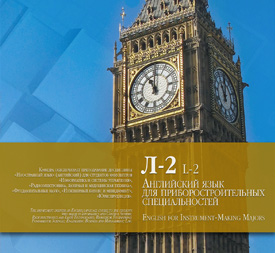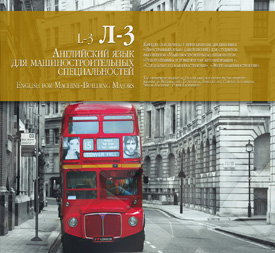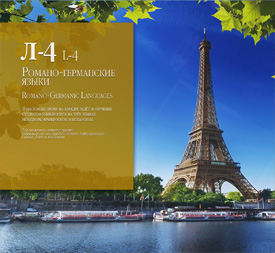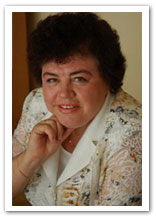
Galina Grigoryevna
Gurova
It was founded in 2004 on the basis of the Foreign Language department. The teachers give English lessons to the students of:
- “Mechanical Engineering technologies” (MT);
- “Mechanical Engineering” (SM);
- “Power Engineering” (E);
- “Robotics and Complex Automation” (RC).
- There are also classes with postgraduate students and applicants of the above faculties and the faculty of "SHS".
There are also faculty sections which are headed by:
- "MT" - Associate Professor Tatyana Yuryevna Borodina
- "SM" - Senior Teacher Alesya Andreevna Zorina
- "E" - Associate Professor Fufurina Tatyana Alekseevna
- "RC" – Senior Teacher Olga Andreevna Zaspa
(Head of the Chair)
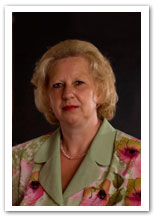
Tatyana Alekseyevna Fufurina
assistant professor with Chair «Linguistics 3»
This email address is being protected from spambots. You need JavaScript enabled to view it.
Fufurina Tatyana Alekseyevna, assistant professor for Chair Linguistics L-3, has been with The Bauman Moscow State Technical University since 1993. T.Fufurina has been head of Faculty for Power-Plant Engineering (Energy Academic Department) since 2003 and has authored a series of textbooks and specialty guides aimed at development of academic literature reading skills in senior-year students. Textbooks and guidelines authored by T.Fufurina are vastly employed for specialty range as diverse as:
- Nuclear Reactors (E7)
- Non-conventional energy sources (E3)
- Cryogenics and cryogenic handling technologies, refrigeration engineering, conditioning systems (E4)
- Ecology (E9)
Faculty for Power-Plant Engineering at BMSTU is one of the university’s oldest academic departments.
Harnessing energy and development of energy-converting machinery constitute one of the most crucial facets of human activity. The beginning of scientific schools and advanced technology research are dating back to the 1860-1870 when the corresponding prototypical department of power-engineering faculty was established with the Educational Imperial House back in 1868.
The faculty comprises 10 specialized chairs and provides high-quality training for engineers, offers professional development, training and opportunities for researchers and developers of the leading research facilities, design bureaus and research, development and production facilities.
The faculty provides professional training and research opportunities with emphasis on the following discipline clusters:
- Rocket-and-space engines and power plants
- piston and combined internal combustion engines
- gas turbines and nonconventional energy sources
- Cryogenics and cryogenic handling technologies, refrigeration engineering, conditioning and life-support and life-sustenance systems
- vacuum and pneumatic plants and assemblies
- theoretical fundamentals of thermal physics
- nuclear reactors and nuclear power plants
- plasma and laser systems for high-energy, green technologies and medical applications
- Ecology and industrial safety - hydromechanics and cybernetic hydropneumatic systems
The faculty effectively incorporates “The English Language” department which is headed by assistant professor Tatyana Alekseyevna Fufurina. The academic staff of the English Language Department are dedicated professional education personnel members, graduates of renowned Linguistic Universities, experienced teachers committed to high quality teaching.
The process of teaching the English language is that of high-level expert knowledge sharing and outstanding proficiency and is accomplished with the use of cutting-edge educational technologies.
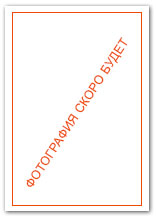
Tatyana Yuryevna Borodina
This email address is being protected from spambots. You need JavaScript enabled to view it.
The faculty of "Engineering Technologies/Manufacturing Technologies" (MT) is the oldest in BMSTU. The year of 1868 can be considered the starting point in its history, when the Imperial Moscow Technical School received the status of a higher educational institution and began training engineers at the departments of "Mechanical Engineering" and "Engineering and Technology". The modern period in the history of the University is associated with the development of innovative approaches to production improvement.
Based on the latest achievements in the development of core theories of technological processes, using up-to-date calculation and simulation techniques, the most advanced principles of automation in modern production via the use of machining centers, robots and automatic control system of production are being developed.
Currently, the twelve main departments of the Faculty are training highly qualified specialists, bachelors and masters for advanced research institutes, design bureaus and scientific-and-production corporations.
МТ-1– Metal Cutting Machines/Machine Tools;
МТ-2– Tool Engineering and Technology;
МТ-3– Manufacturing Engineering;
МТ-4– Metrology and Interchangeability;
МТ-5– Casting Technology and Equipment
МТ-6– Metal Forming Technology
МТ-7– Welding Technology;
МТ-8– Materials Science in Mechanical Engineering;
МТ-10– Rolling Technology and Equipment;
МТ-11– Electronic Technology in Mechanical Engineering;
МТ-12– Laser Technology in Mechanical Engineering;
МТ-13– Materials Processing Technology.
The MT section employs highly qualified teachers, graduates of language higher schools. English language training is provided in a high level professional manner using the state-of-the-art technical equipment.
English classes for the 1-4-year students are held in accordance with the English language program developed by the L-3 Department. The program for the first- and second-year students is based on the Manual of English language for technical higher schools, the authors: Orlovskaya I.V., Skubrieva A.I., Samsonova L.S.
A specialty introductory course begins at the third year of education. Students learn the chapters of «Cambridge English for Engineering» and (guidance manuals) course books on their specialties, and prepare for the final examination in the English language.

Alesya Andreevna
Zorina
head of the SM panel, Senior lecturer of the L3 department, over 20 years of teaching experience as a BMSTU faculty member.
The history of the “SM” faculty – the faculty of Mechanical Engineering – dates back to 1938, when a decree of the SNK (the Council of People's Commissars, the government body of the USSR) was issued, according to which an artillery deparment (“E”) and a munition department (“N”) were to be founded in the BMSTU, and the transportation department (“T”) was supposed to start training specialists in the field of tracklaying vehicles. The end of the 1960s already saw the academic expertise of the SM faculty professors and graduates being recognised all over the USSR. This is one of those BMSTU traditions that are still alive today; many of the SM departments lead the research and development in corresponding branches of industry, holding scientifical conferences and enjoying a high reputation in Russia as well as abroad.
Prospective graduates of the SM faculty can choose between a bachelor's, a master's or a specialist's degree, depending on the department curriculum options. Graduates are in high demand in Russia's leading research institutions, design offices and science&production associations that are set to contribute to the prosperity of our country.
The “SM” panel of the L3 department is characterised by highly qualified teachers, a good number of whom hold degrees in linguistics and other subjects as high as PhD. State-of-the-art teaching methods, including those making heavy use of IT, are widely employed.
Students are trained in the following fields:
SM1 – Spacecraft and Carrier Rockets
SM2 – Aerospace Systems
SM3 – Spacecraft Dynamics and Flight Control
SM4 – High Precision Airborne Devices
SM5 – Autonomous Data Processing and Control Systems
SM6 – Rocket and Pulse Systems
SM7 – Special Robotics and Mechatronics
SM8 – Rocket Launching Systems
SM9 – Multipurpose Tracked Vehicles and Mobile Robots
SM10 – Wheeled Vehicles
SM11 – Underwater Robots and Vehicles
SM12 - Rocket and Space Engineering Technologies
SM13 – Rocket and Space Composite Structures

Olga Andreevna
Zaspa
The head of RC section is Associate Professor
The Faculty of Robotics and Complex Automation provides education of qualified engineers, researchers, and designers for the leading research institutes, design bureaus, and scientific production associations.The faculty celebrated its 25th anniversary in 2012, being the youngest faculty of Bauman University. Its establishment resulted from the appearance of new scientific and technological areas in mid-nineteen eighties. Development of complex automation was among the most important ones. It was supposed to provide for the creation of integrated automatic design and manufacturing systems for mechanical and electronic engineering.
The faculty is comprised of departments featuring 100-year history (departments RC-1, RC-2, RC-3, RC-5), as well as younger ones, founded 25-30 years ago (departments RC-6, RC-9).
The teaching staff of RC section of L-3 department delivers classes of the English language to students, post-graduates, and external PhD students of Robotics and Complex Automation Faculty. The curricula include 2 stages: basic (1st and 2nd year) and profession-oriented (3rd year, Master course, post-graduate (PhD) course).
At the basic level the training is delivered using a textbook for engineering students (by I.V.Orlovskaya, A.I.Skoubrieva, and L.S.Samsonova). At profession-oriented level the classes are delivered based on Cambridge English for Engineering textbook (by Mark Ibbotson), as well as specialized study manuals developed by the department staff.
The head of RC section is Associate Professor A.G. Vasilieva.


